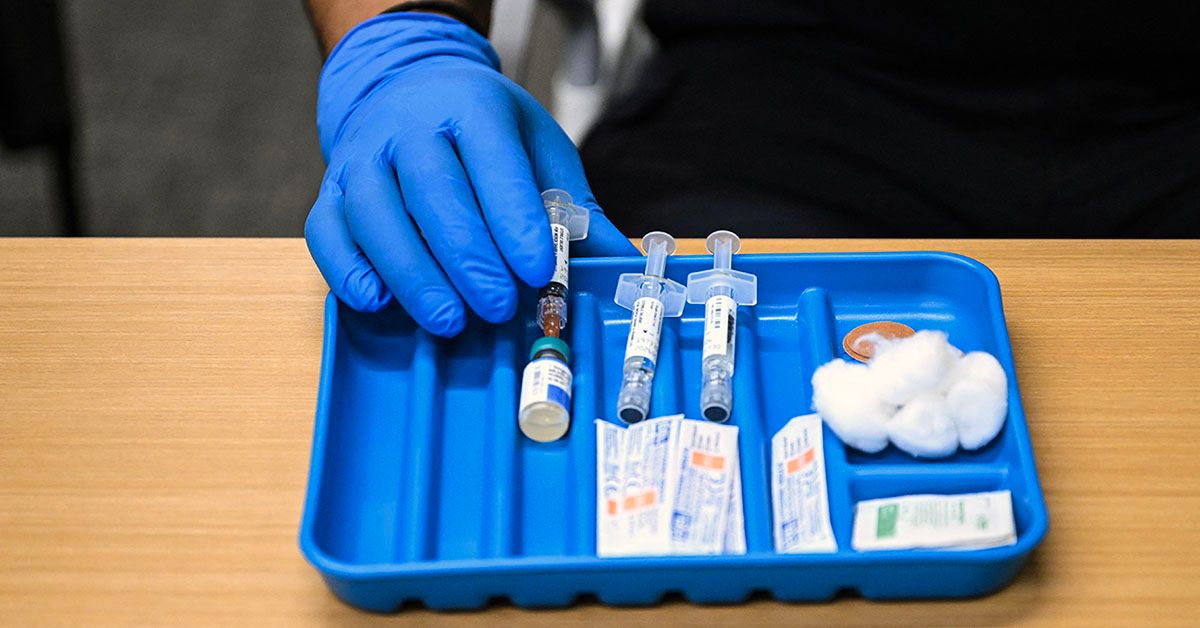Who Should Receive a Measles Vaccine Booster in Adulthood and Why?
On a crisp morning in New York City, a mother stood anxiously in line at a local pharmacy, clutching her toddler’s vaccination records. With the shadow of a measles outbreak looming—607 confirmed cases reported nationwide as of April 2025—her decision to prioritize vaccination was as palpable as the air she breathed. Most cases, according to the Centers for Disease Control and Prevention (CDC), involved individuals who were unvaccinated or whose status was unknown. Across the United States, fear mingles with skepticism as parents and adults alike grapple with the urgent questions surrounding the measles vaccine booster.
The Return of Measles: An Epidemic Revived
The resurgence of measles poses significant public health challenges. Health and Human Services Secretary Robert F. Kennedy Jr. recently echoed this sentiment, stating, “Vaccination is the most effective way to prevent the spread of measles.” The MMR vaccine—protecting against measles, mumps, and rubella—has long been established as a cornerstone of childhood immunization. However, with variants and differing vaccine formulations complicating matters, the need for boosters in adulthood is now under serious discussion.
As it stands, the CDC’s vaccination schedule recommends two doses for children, providing a striking 97% protection against measles after the second dose. The first is administered between 12-15 months, and the second at 4-6 years. A single dose, however, only offers 93% protection—a statistic that raises concerning questions about immunity as individuals age.
Understanding Immunity: The Need for a Booster
So, what exactly is a vaccine booster? Dr. David Cutler, board-certified family medicine physician at Providence Saint John’s Health Center, explains, “A booster vaccine acts as a ‘reminder’ for the immune system. It can initiate or augment a person’s immune protection, keeping the body vigilant against pathogens it has been trained to fight.”
As adults who received vaccinations in childhood reflect on their immunity, several factors come into play:
- The prevalence of measles infections in their community.
- The degree of immunity their community has achieved through past infections or vaccinations.
- The individual’s susceptibility to measles infection based on personal health and circumstances.
Who Needs a Booster?
Dr. Cutler emphasizes, “Not all adults may need a booster, but specific groups certainly should consider one based on their risk factors.” Adults born before 1957, for example, are generally considered immune due to prior infections. Conversely, “Adults born after that date may require a booster if they received the less effective inactivated virus vaccine between 1963 and 1967.”
For many, the pathway to understanding one’s need for a booster starts with a simple blood test known as the Immunoglobulin G (IgG) test. As Cutler notes, “Finding sufficient IgG antibodies means you are immune.” If doubts linger, seeking professional advice remains crucial.
High-Risk Groups: Targeted Vaccination Strategies
As we delve deeper into the demographics of those who should be targeted for booster vaccinations, a clearer picture emerges. According to medical guidelines, adults at higher risk of exposure include:
- Healthcare workers
- Frequent international travelers
- Students in post-secondary institutions
Dr. Michelle Thompson, an immunologist at the Global Health Institute, elaborates, “These groups are more likely to come into contact with unvaccinated populations or are traveling to regions where measles is still endemic. Their vaccination status should be a priority.”
While the risks associated with the MMR vaccine are minimal for most adults, there are exceptions. Individuals with certain health conditions—such as those undergoing chemotherapy or who have severe immunosuppression—might need to weigh the pros and cons of the live attenuated vaccine, which is the only form currently available.
Consulting the Experts
Cutler strongly advises individuals to consult their primary care physicians: “The benefits of vaccination must be weighed against the potential risks, especially for those with unique health vulnerabilities. That’s not a one-size-fits-all decision.” In a world where misinformation spreads as easily as disease, the need for expert guidance is more significant than ever.
As adults across the nation grapple with the idea of vaccination boosters, the juxtaposition of personal choice against public health looms large. Ultimately, the narrative surrounding measles and its prevention will continue to evolve, rooted in the collective understanding of safety, community health, and the necessity of vaccination. Each decision made in the vaccine line could contribute to a larger societal impact, protecting not just a child or an adult, but the community as a whole.
In this era of heightened awareness, it is clear that the stakes of vaccination extend beyond the individual. As public health officials align with medical professionals to combat the current outbreak and diminish the risk of future measles resurgence, the dialogue around boosters for adults will remain essential—a guardian of immunity in a world still reeling from past hesitations.
Source: www.medicalnewstoday.com


